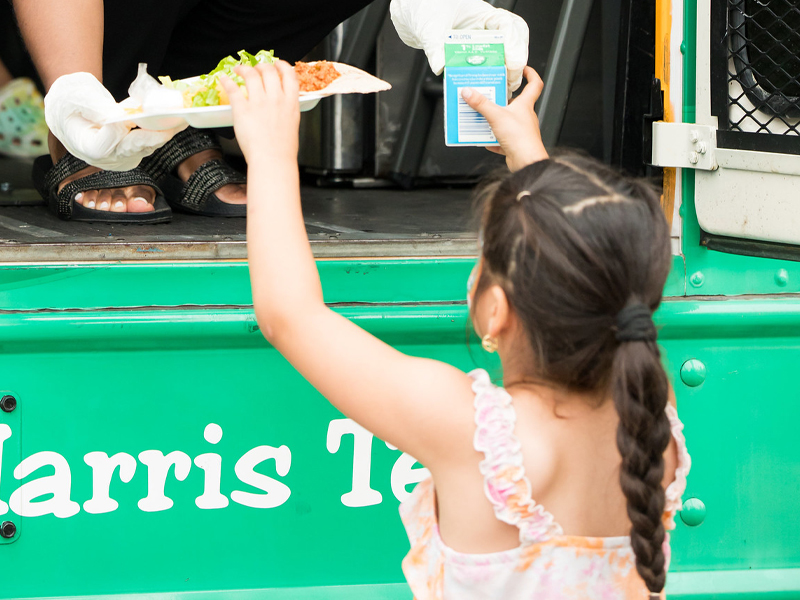
At Children’s National Hospital (CNH) in Washington, D.C., Type 2 diabetes diagnoses rose 182 percent during the first year of the Covid pandemic, compared to the prior two years. A CNH needs assessment found that two-thirds of the 5,000 children cared for at the hospital’s Diabetes Care Complex are food insecure.
In October 2021, CNH joined BGR partner Capital Area Food Bank (CAFB) to launch a Diabetes Food Pharmacy so families could take home nutritious foods from their regular medical appointments. The Pharmacy provides access to wholesome groceries and is available to any family in the Complex who is identified as food insecure. Since its inception, the Pharmacy has reached over 920 patient families with 35 to 40 pounds of groceries at each quarterly appointment, as well as recipe cards and access to nutritional counseling.
The Food Pharmacy enables children diagnosed with prediabetes or diabetes who also screen positive for food insecurity to receive a prescription for medically tailored groceries, which can be filled immediately on site. The groceries provided include both produce and shelf-stable items. Families are also provided with information about where to find additional help obtaining food, along with nutrition education materials. More than 2,400 families are expected to benefit from this year’s project.

At Children’s National Hospital (CNH) in Washington, D.C., Type 2 diabetes diagnoses rose 182 percent during the first year of the Covid pandemic, compared to the prior two years. A CNH needs assessment found that two-thirds of the 5,000 children cared for at the hospital’s Diabetes Care Complex are food insecure.
In October 2021, CNH joined BGR partner Capital Area Food Bank (CAFB) to launch a Diabetes Food Pharmacy so families could take home nutritious foods from their regular medical appointments. The Pharmacy provides access to wholesome groceries and is available to any family in the Complex who is identified as food insecure. Since its inception, the Pharmacy has reached over 920 patient families with 35 to 40 pounds of groceries at each quarterly appointment, as well as recipe cards and access to nutritional counseling.
The Food Pharmacy enables children diagnosed with prediabetes or diabetes who also screen positive for food insecurity to receive a prescription for medically tailored groceries, which can be filled immediately on site. The groceries provided include both produce and shelf-stable items. Families are also provided with information about where to find additional help obtaining food, along with nutrition education materials. More than 2,400 families are expected to benefit from this year’s project.




